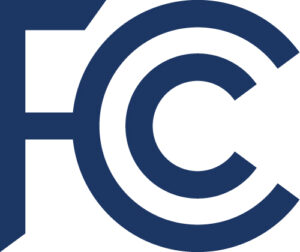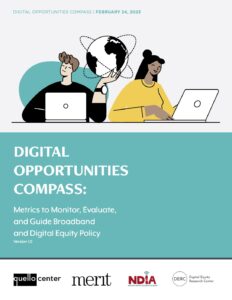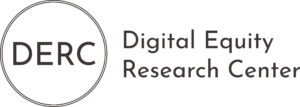 The Federal Communications Commission’s Task Force to Prevent Digital Discrimination held a public listening session at Medger Evers College in Brooklyn yesterday. As part of the event, the FCC invited several speakers from a diverse group of organizations representing communities impacted by digital discrimination to provide their comments that could be included in the public record as part of the FCC’s inquiry.
The Federal Communications Commission’s Task Force to Prevent Digital Discrimination held a public listening session at Medger Evers College in Brooklyn yesterday. As part of the event, the FCC invited several speakers from a diverse group of organizations representing communities impacted by digital discrimination to provide their comments that could be included in the public record as part of the FCC’s inquiry.
As the FCC’s event page describes (and lists the speakers invited), the purpose of the listening session was to “gain additional information and understanding from affected communities, state, local, and Tribal governments, public interest advocates, and providers about challenges, barriers and experiences in ensuring all people of the United States benefit from equal access to broadband.”
Here are the remarks that I delivered along with the presentation that Becca Quon, Program Manger at the Digital Equity Research Center created for the event:
“Hello, everyone,
My name is Colin Rhinesmith, I am the Founder and Director of the Digital Equity Research Center located at the Metropolitan New York Library Council.
The Digital Equity Research Center is an applied research center that assumes digital inequality research must include analyses of historical injustice, systemic racism, and other structural inequalities in order to understand and address the root causes of the digital divide. This is one of the reasons why I am so glad the FCC is focused on understanding and defining Digital Discrimination as part of its work.
I am here today not only to share research findings from our work and others’ work to help inform the FCC in how it thinks about Digital Discrimination, but also to underscore the importance of key indicator collection and measurement data needed to advance digital equity and justice here in New York City and throughout the state.
In doing so, I want to highlight a report, titled ‘Achieving Digital Equity in New York.’ The report was published in 2021 by my colleague Lauren Moore, the Assistant Commissioner for Libraries and the State Librarian of New York.
The report identifies ‘the disproportionate access to digital resources that can be traced back to a wealth gap that has existed since 1950.’ The report goes on to say that ‘Historically, resources have gone to higher-income neighborhoods. This disproportionality continues today. Poverty and historical and structural racism are also at play; lack of or underinvestment in poor Black and brown communities such as the Bronx continues, resulting in many residents not having access to the internet at home.’
Not only should the FCC consider this history in its study of Digital Discrimination, it should also look at how the agency can help provide additional support specifically to areas of the country that have been discriminated against.
In response to this historical and technological discrimination, the FCC should help to create and support thriving digital equity ecosystems. The State Librarian’s report emphasizes that digital equity ecosystems require ‘the coordination, cooperation, and the intentional capacity-building of the many organizations supporting digital inclusion across New York.’
Towards this goal, I encourage the FCC to review findings of our report titled ‘Digital Equity Ecosystems Measurement Framework,’ which was published last year by the Metropolitan New York Library Council.
The report presents findings from a participatory research project with thirty-two digital equity and digital justice coalition leaders from across the United States, including several here in New York, who contributed their ideas to inform the framework. This work also responds to our State Librarian’s call for coordination and capacity-building by providing measurement tools to assist local coalitions in gathering data for planning, improvement, and advocacy purposes.
In its outline for collaborative change, our State Librarian’s report recommends shifting the focus of the work to address and prevent Digital Discrimination from digital equity to digital justice, stating,
‘It’s impossible to separate the root causes of digital inequity from the root causes of racism, opportunity gaps, and other systems of oppression.’
Based on these findings, which are echoed by research undertaken by our Center, I urge the FCC to move beyond using individual consumer-level indicators, such as internet speeds and quality of service measures alone in their inquiry. Rather, the FCC should undertake a more holistic community-level approach using equity indicators, such as those identified by the City University of New York’s Institute for State and Local Governance. I believe this approach to data-driven and equity-focused policymaking can assist the FCC in its efforts to combat digital discrimination while also using tools to learn about the conditions for disadvantaged groups, the disparities influencing their members, and whether those disparities are improving among specific sociodemographic communities, indicators provided by CUNY’s institute.
In closing, I applaud the FCC for leading this important work and hope the agency will see the Digital Equity Research Center as a partner in helping to create and sustain healthy digital equity ecosystems here in New York and across the country.
Thank you for listening.”



